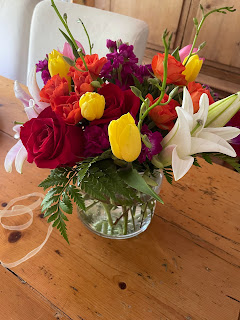If there is anything the internet has shown me, it is that repetition is useful. More duplication of posts from the Topos Institute blog.
Women in Logic website launched
Thursday, 17 Mar 2022Categories: [announcement]
Tags: [logic]
World Logic Day is an international day proclaimed by UNESCO in association with the International Council for Philosophy and Human Sciences (CIPSH) in 2019. The idea is to celebrate it on the 14th of January every year.
Last year we celebrated Logic Day. Not this Logic:
but more like the Logic of the ideas described below
This year we decided to celebrate Logic Day by launching the
Women in Logic (WiL) is a collective of women working in logic, as well as a forum that brings together women conducting research in logic and closely related areas, with the goals of enhancing the experience of women in these communities, making their achievements known, and increasing the number of women in logic.
The flagship activity of the collective is the Women in Logic workshop that has happened every year since 2017. This workshop is usually associated with one of the big conferences in logic for Computer Science, so either FLoC (Federated Logic conference), LiCS (Logic in Computer Science) or FSCD (Conference on Formal Structures for Computation and Deduction), so far. The workshop has happened in Reykjavík (Iceland), Oxford (UK), Vancouver (Canada), Paris (online due to covid) and Rome (online due to covid). The next workshop should be happening happened in Haifa, Israel, as part of FLoC, on July 31st, 2022.
Women are chronically underrepresented in the Logic communities in Computer Science, in Philosophy, in Cognitive Science and in Mathematics; consequently they sometimes feel both conspicuous and isolated, and hence there is a risk that the under-representation is self-perpetuating. The WiL workshops provide an opportunity for women to increase awareness of one another and one another’s work, to combat the feelings of isolation. It provides an environment where women can present to an audience comprising mostly women, replicating the experience that most men have at most CS meetings, and lowering the stress of the occasion; we hope that this will be particularly attractive to early-career women.
The workshop Women in Logic (WiL) is supported by small grants provided by ACM’s SIGLOG, the Vienna Center for Logic and Algorithms, the Institute of Logic, Language and Computation of the University of Amsterdam and the Topos Institute. Thank you friends!!
- Facebook: WomenInLogic
- Twitter: womeninlogic1
- Blog: womeninlogic.blogspot.com















